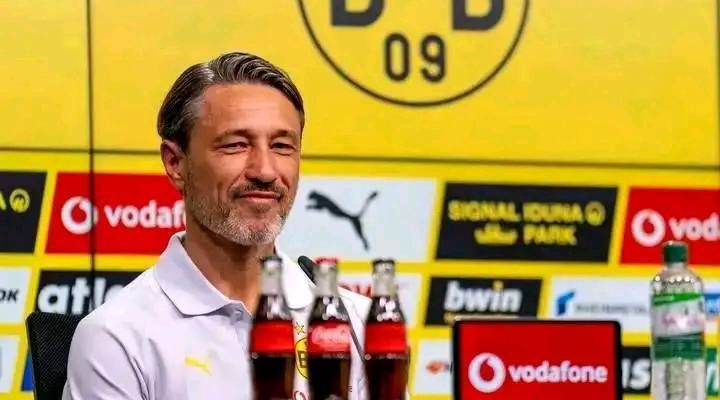Every unit feels like it’s being held together by sheer willpower alone, with duct tape and determination substituting for depth and fitness. The mood inside the camp is tense, not because of lack of effort or belief, but because reality is beginning to creep in like a slow-moving shadow that threatens to blot out all the optimism that surrounded the preseason. The squad—once a tight, cohesive machine brimming with hope—is now a skeleton of itself. And as the calendar creeps closer to the next crucial fixtures, anxiety is replacing anticipation.
Juju’s absence has become more than just a tactical issue; it’s symbolic of the fragility the entire team faces. He was supposed to be one of the lynchpins of the campaign, a driving force both in defense and in transitioning play from the back. But rehabilitation has proven more drawn out than expected. What began as a short-term knock has developed into an open-ended timeline filled with questions, uncertainty, and setbacks. Every update from the medical team is measured, cautiously optimistic at best, but with no concrete date for return. His leadership, his voice on the pitch, his reading of the game—none of it can be easily replicated.
Then there’s Emre. The situation with him is becoming harder to manage by the day. A fitness issue that originally seemed minor has spiraled into something chronic. He’s tried pushing through; he’s tried resting; he’s gone through tailored training sessions—but nothing has brought him back to full capacity. His absence affects the midfield’s balance, especially in a squad already struggling to dominate possession without him. The concern isn’t just physical either. The longer he remains on the sidelines, the more questions arise: is this a long-term problem? Can he be relied upon for the final stretch of the season? And more importantly, is the team mentally ready to cope without someone who was once viewed as an automatic starter?
Aaron’s situation adds another layer of complexity. He’s not completely out, but he’s not fully in either. A frustrating limbo where he’s able to train with the group, yet only in parts, avoiding contact and high-intensity drills. It’s as if every day brings a roll of the dice—will he be available or not? Matchday planning has become a nightmare for the coaching staff. They’re forced to prepare for multiple scenarios, some with Aaron in the lineup, some with him watching from the bench or stands. That kind of inconsistency filters down to the players too. Chemistry, rhythm, understanding—those things need time and stability to flourish, and right now, neither is in supply.
Niki and Fabio are the only ones currently at full throttle. They bring the energy, the fight, the commitment. But even there, doubts are creeping in—not about their attitude, which is unquestioned, but about their suitability to carry the burden in such a critical period. They’re giving everything, pushing limits every session, every match, but questions hang over whether they can truly fill the void left by more experienced or physically dominant teammates. Can they be relied upon when the pressure’s at its peak? Can they lead, not just follow? They’re still young, still developing. Throwing them into the furnace of must-win games might ignite something special—or it might burn out their confidence.
The fans can feel it too. What began as isolated murmurs of concern has now spread across the terraces and online forums like wildfire. Every match is scrutinized, every lineup analyzed with forensic obsession. “Where are the reinforcements?” they ask. “What’s the plan?” Because if there is one, it hasn’t materialized publicly. The transfer window looms like a lifeline, but with the clock ticking, the margin for error is dangerously slim. The front office insists they’re working around the clock, but actions speak louder than reassurances. The fans have supported through thick and thin, but they can sense when something isn’t right—and right now, something feels deeply wrong.
Internally, the coaching staff is stretched thin. Game-planning has turned into a puzzle with missing pieces. What once was a squad with depth and flexibility has turned rigid and predictable, simply due to lack of options. The tactical variations are drying up—not because the manager lacks ideas, but because he lacks players to implement them. Wingbacks are playing as midfielders; central defenders are asked to overlap. Everything is a workaround, a Plan B or C or D. And while some of that has bred creativity, it’s also exposed vulnerabilities. Opponents are beginning to figure it out. The press isn’t as effective. The transitions are slower. The drop-off is real.
In the dressing room, there’s still belief—just enough to keep pushing. The core group is tight-knit. They’ve been through tough stretches before, and they’re not panicking. Not yet. But the tone of the conversations is shifting. Where once players talked about titles, now they talk about surviving the next match. Dreams haven’t disappeared, but they’ve been boxed up, shelved temporarily until the team can stabilize. No one is saying it out loud, but there’s a creeping fear that the season could slip away not because of a lack of ambition or effort, but because of sheer misfortune. Injuries, timing, luck—it’s a cruel trifecta.
The younger players on the fringes now find themselves thrust into spotlight roles. For some, it’s the opportunity of a lifetime. For others, it’s too soon, too fast. Mistakes are being made. They’re learning on the job, but in matches where one lapse can undo an entire week’s preparation. The veterans are doing what they can—mentoring, guiding, encouraging—but even their leadership is being tested. You can’t talk your way out of an injury crisis. You can only endure it.
What makes this stretch even more heartbreaking is how close the squad seemed to be to something special not long ago. The pre-season hype wasn’t unfounded. There were signs of real cohesion, a blend of youth and experience, tactical clarity, and above all, hunger. That hunger hasn’t gone—but it’s harder to feed when you’re starved of consistency and options. What was once a campaign of momentum is now a story of attrition.
Still, there’s a glimmer of hope. Reinforcements could still arrive. Talks are happening behind closed doors. Agents are being contacted. Emergency loan deals are being explored. But again, nothing is certain. The market is tough. Everyone’s looking for the same thing: a player who can hit the ground running, fit in instantly, and stay healthy. And with budgetary constraints and limited time, the margin for error is almost zero. Bring in the wrong player, and you’ve wasted time and resources. Bring in no one, and you’re risking burnout and collapse. It’s a delicate balancing act—and one that has already gone on far too long.
Meanwhile, other teams aren’t standing still. Rivals are strengthening. They see the weakness and are circling like sharks. The league table doesn’t lie. Every dropped point has consequences now. There’s no buffer, no margin for slip-ups. A single bad result can see the team slide down multiple spots. The pressure is relentless, and the mental toll is growing. Players are being asked not just to perform physically but to shoulder the weight of an entire season’s expectations—with half a squad.
And so, the dream teeters on the edge. It’s not lost yet. The season isn’t over. But it’s hanging on by a thread, and that thread is fraying. Every day without reinforcements, every training session where another player pulls up limping, every press conference where the manager is forced to give another vague update—it all adds to the tension.
There’s still a window for revival. A few smart decisions, a bit of good luck, a player returning earlier than expected—it could all swing back the other way. This team, for all its current struggles, still has spirit. Still has heart. They haven’t given up, and neither have the fans. But belief alone doesn’t win matches. Hope doesn’t fill the gaps in the lineup.
The next few weeks will define the season. Not in terms of trophies or titles, but in terms of resilience, identity, and survival. The squad is in crisis, yes—but it hasn’t collapsed. Not yet. The next step—whoever takes it—must be forward. Because another misstep now, and it might be one step too many in the wrong direction.



